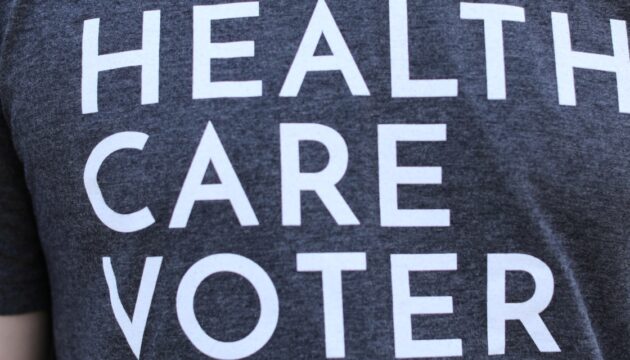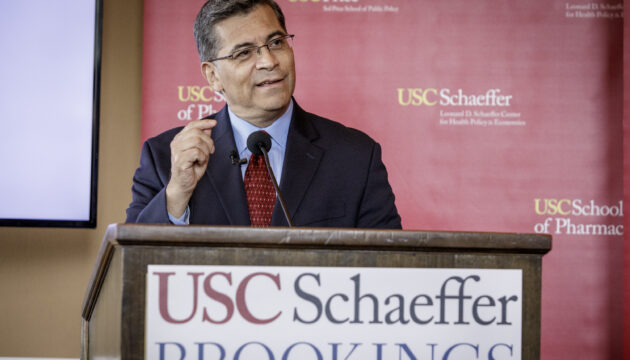Healthcare Reform
Our work in Healthcare Reform
-
Provider Charges Relative to Medicare Rates, 2012-2017
Researchers examined data on charges for providers treating Medicare patients and compared them to Medicare’s set payment rate across specialties. They found specialties possessing the ability to surprise bill out-of-network patients higher charges relative to Medicare rates than other specialties.
-
To Really Cut Health Spending, Put Pharmacists on the Front Line
Sixteen percent of all U.S. healthcare expenditures can be attributed to patients failing to properly adhere to their prescriptions. Pharmacists can be an important, and valuable, part of a patient’s care team.
Categorized in -
Who Pays in Medicare Part D? Giving Plans More Skin in the Game
Private plans have the potential to lead the way toward innovative contracting approaches that emphasize value and, in doing so, deliver on the original vision for the Part D marketplace.
Categorized in -
PODCAST: The Biggest Health Care Issues of the 2020 Election
In this episode of the Brookings Cafeteria podcast, health policy experts from the USC-Brookings Schaeffer Initiative discuss the presidential candidates’ health proposals, and also look at what to do about surprise medical billing.
-
The Success of Medicare Advantage Makes it a Better Policy Choice than ‘Medicare for All’
This public-private partnership is delivering high-quality health care at comparatively low cost.
Categorized in -
The Affordable Care Act and Health Insurance Coverage Among People With Diagnosed and Undiagnosed Diabetes: Data From the National Health and Nutrition Examination Survey
Insurance coverage can change the health trajectory of people with diabetes by facilitating timely diabetes diagnosis and management.
Categorized in -
Experience with New York’s Arbitration Process for Surprise Out-of-Network Bills
Using data from the New York Department of Financial Services (DFS), USC-Brooking Schaeffer Initiative Associate Director Loren Adler found that the state’s arbitration process is substantially increasing what New Yorkers pay for health care.
-
Retroactive Enrollment: A Feasible Way to Bring Auto-Enrollment to the Individual Market
Half of the U.S. population living without health insurance are eligible for coverage through Medicaid or are eligible to receive financial assistance to buy coverage. “Retroactive” enrollment may offer a politically feasible way to automatically enroll people in health coverage.
-
Retroactive Enrollment: A Feasible Way to Bring Auto-Enrollment to the Individual Market
Helping people benefit from the programs for which they are eligible could have a significant impact on the share of Americans with health coverage, possibly making the idea of automatic enrollment into coverage attractive across the political spectrum.
Categorized in -
Becerra Emphasizes Bold Solutions at USC-Brookings Schaeffer Initiative Event on Paths to Universal Coverage
In a panel discussion, Schaeffer experts outline policy approaches to improve the current healthcare system, following keynote remarks by California Attorney General Xavier Becerra.
Categorized in









